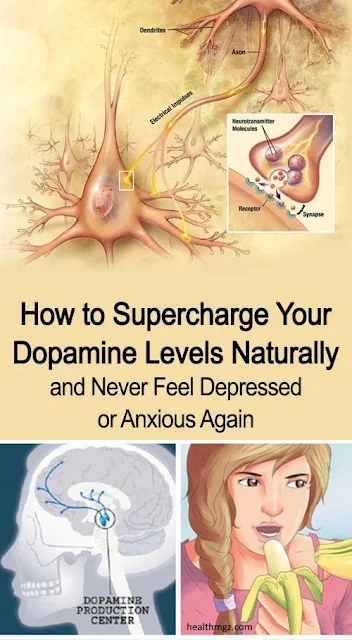Have you heard of dopamine? Well, you have surely felt its effects!
Dr.Mercola says:
“Pleasure — the good feeling you get in response to drugs, food, sex and other stimulants, including the simple act of doodling1,2 — is driven by the release of various neurotransmitters throughout your brain, including dopamine.3 As you probably know, dopamine is associated with pleasure and reward. When dopamine is released, it tells your brain to expect something rewarding. It also drives you to seek rewards and modulates how rewarding each one will be.”
It is, therefore, a neurotransmitter produced by the brain, which crosses synapses and attaches to a dopamine receptor on the next nerve and passes on the message.
According to the neuroscientist Dean Burnett, Ph.D., lecturer and tutor at the U.K.’s Cardiff University Center for Medical Education, and creative genius behind The Guardian’s popular “Brain Flapping” column:
“Anything that causes us to experience pleasure, in any context, invariably involves activity in the brain’s mesolimbic reward pathway. It’s a deeply embedded area of the brain, made up of many links between the nucleus accumbens and the ventral tegmental area.
It’s very complex, but basically, these regions are responsible for reviewing what we’re experiencing and deciding whether it warrants the sensation of pleasure, and supplying this pleasure, or ‘reward,’ if the answer is yes. The neurological processes that govern this area use dopamine, hence dopamine’s frequent labeling as the ‘pleasure chemical.’”
Its roles are crucial to the body, as it stimulates sleep, mood, attention, creativity, cognitive function, and movement. Therefore, its low levels affect the personality, memory, sleeping, and mood.
Low dopamine levels are usually a result of obesity, a poor diet, nutritional deficiencies, thyroid disorders, and dopamine antagonist drugs, and these are the most common symptoms:
- Weight gain
- Mood swings
- Fatigue
- Poor sleep
- Apathy
- Poor motivation
- Addictions to stimulants
- Difficulty focusing
- Excessive feelings of hopelessness or guilt
- Inability to enjoy life
- Parkinson’s Disease
- Poor memory
- Impulsive or destructive behaviors
- Procrastination
- Restless leg syndrome
If you want to access the levels of dopamine in the body you should do a blood test, specifically, a test for catecholamines, which evaluates the amount of the hormones epinephrine, norepinephrine, and dopamine in the blood. A few days before the test, your doctor will give you a list of foods you should avoid.
Fortunately, in case your dopamine levels are low, you can optimize them by consuming the right foods, nutrient-rich, organic, whole foods. Make sure you increase the intake of the following:
- Fish
- Eggs
- Beets
- Almonds
- Bananas
- Apples
- Oatmeal
- Chicken
- Chocolate
- Sesame seeds
- Green leafy vegetables
- Olive Oil
- Turmeric
- Oregano
- Pumpkin seeds
- Rosemary
On the other hand, there are foods that lower the levels of dopamine in the body, like sugars and artificial sweeteners, such as aspartame. Moreover, foods rich in saturated fats reduce dopamine levels as well and decrease the sensitivity of dopamine receptors.
In order to naturally correct dopamine levels, you should:
-Eat a healthy diet, rich in organic whole foods, and avoid processed foods and sugar
-Exercise regularly, to boost serum calcium levels, as it improves brain dopamine synthesis.
-Regularly get fresh air and expose to sunlight
-Try yoga, massage, and meditation, that increase dopamine release
-Listen to music, that naturally stimulates the release of dopamine
Additionally, the following herbs and supplements boost the levels of dopamine in the body:
-Curcumin: It boosts dopamine levels and treats depression
-St. John’s Wort-It is another herb that increases the dopamine release and treats depression
-Ginseng-It improves the cognitive function and treats depression and anxiety
-Ginkgo Biloba: It elevates dopamine levels and treats memory issues, anxiety, depression, headaches, and fatigue
-Folate is crucial in the production of dopamine
-L-theanine: It improves the production of dopamine and serotonin
-SAM-e-It raises dopamine levels in the body and treats depression
-Shilajit-It is a rich source of fulvic acid and treats anxiety and increases levels of neuronal dopamine
-Mucuna pruriens– It offers numerous benefits for the healthy function of the brain
-Tyrosine: It boosts brain performance.

